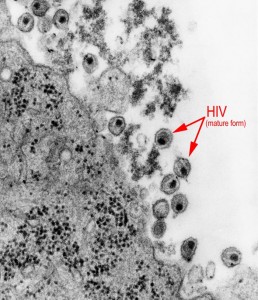On January 29, 2015, FDA approved Evotaz, a fixed dose combination tablet containing 300 mg of atazanavir and 150 mg of cobicistat. Evotaz is indicated in combination with other antiretroviral agents for the treatment of of human immunodeficiency virus (HIV 1) infection in adults.

Use of Evotaz in treatment-experienced patients should be guided by the number of baseline primary protease inhibitor resistance substitutions. The recommended dosage of Evotaz is one tablet taken once daily orally with food.
One EVOTAZ tablet provided comparable atazanavir exposures (90% confidence intervals within 80%-125%) to one atazanavir capsule (300 mg) plus one cobicistat tablet (150 mg) following single-dose administration with a light meal to healthy subjects (N=62).
The safety and efficacy of atazanavir coadministered with cobicistat were evaluated in a randomized, double-blind, active-controlled trial (Study 114) in HIV-1 infected treatment-naive subjects with baseline estimated creatinine clearance above 70 mL/min (N=692). In Study 114, subjects were randomized in a 1:1 ratio to receive either atazanavir 300 mg coadministered with cobicistat 150 mg once daily or atazanavir 300 mg coadministered with ritonavir 100 mg once daily.
All subjects received concomitant treatment with 300 mg of tenofovir DF and 200 mg of emtricitabine once a day, administered as a single tablet.
The proportion of subjects with HIV-1 RNA < 50 copies/ML was 85% for atazanavir 300 mg coadministered with cobicistat 150 mg + emtricitabine/tenofovir DF and 87% for atazanavir 300 mg coadministered with ritonavir 100 mg once daily + emtricitabine/tenofovir DF [treatment difference -2.2% (95% CI = -7.4%, 3.0%).
The safety of atazanavir and cobicistat coadministered as single agents has been established from a Phase 2 trial, Study 105, and a Phase 3 trial, Study 114. In the pooled analysis, 771 HIV-1 infected, antiretroviral treatment-naive adults received for at least 48 weeks:
- atazanavir coadministered with cobicistat and emtricitabine/tenofovir DF (N=394) or
- atazanavir coadministered with ritonavir and emtricitabine/tenofovir DF (N=377).
The most common adverse reactions (all Grades) and reported in >10% of subjects in the atazanavir coadministered with cobicistat group were jaundice (13%), ocular icterus (15%), and nausea (12%); the most common adverse reactions in the atazanavir coadministered with ritonavir group were jaundice (11%), ocular icterus (17%), nausea (11%), and diarrhea (11%).
The proportion of subjects who discontinued study treatment due to adverse events, regardless of severity, was 7% in both the atazanavir coadministered with cobicistat and atazanavir coadministered with ritonavir groups.
Evotaz is a product of Bristol-Myers Squibb Co.


One thought on “HIV drug, Evotaz, receives FDA approval”